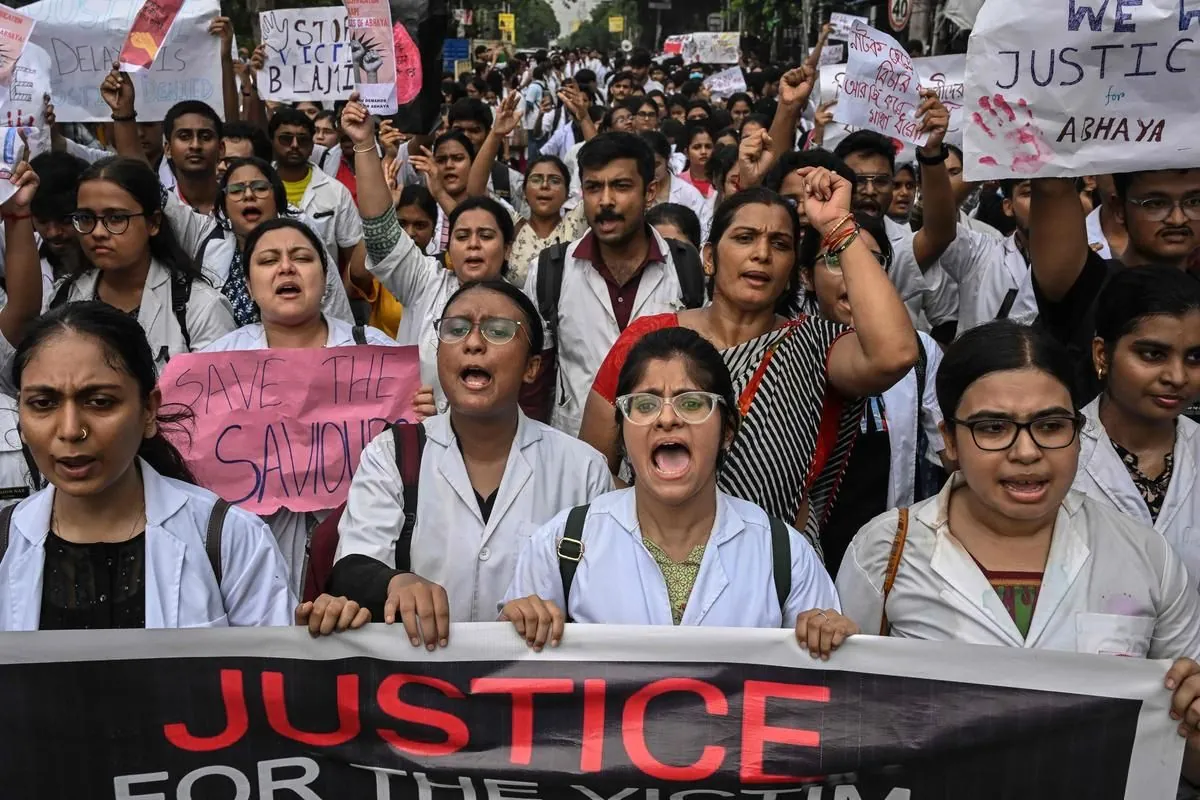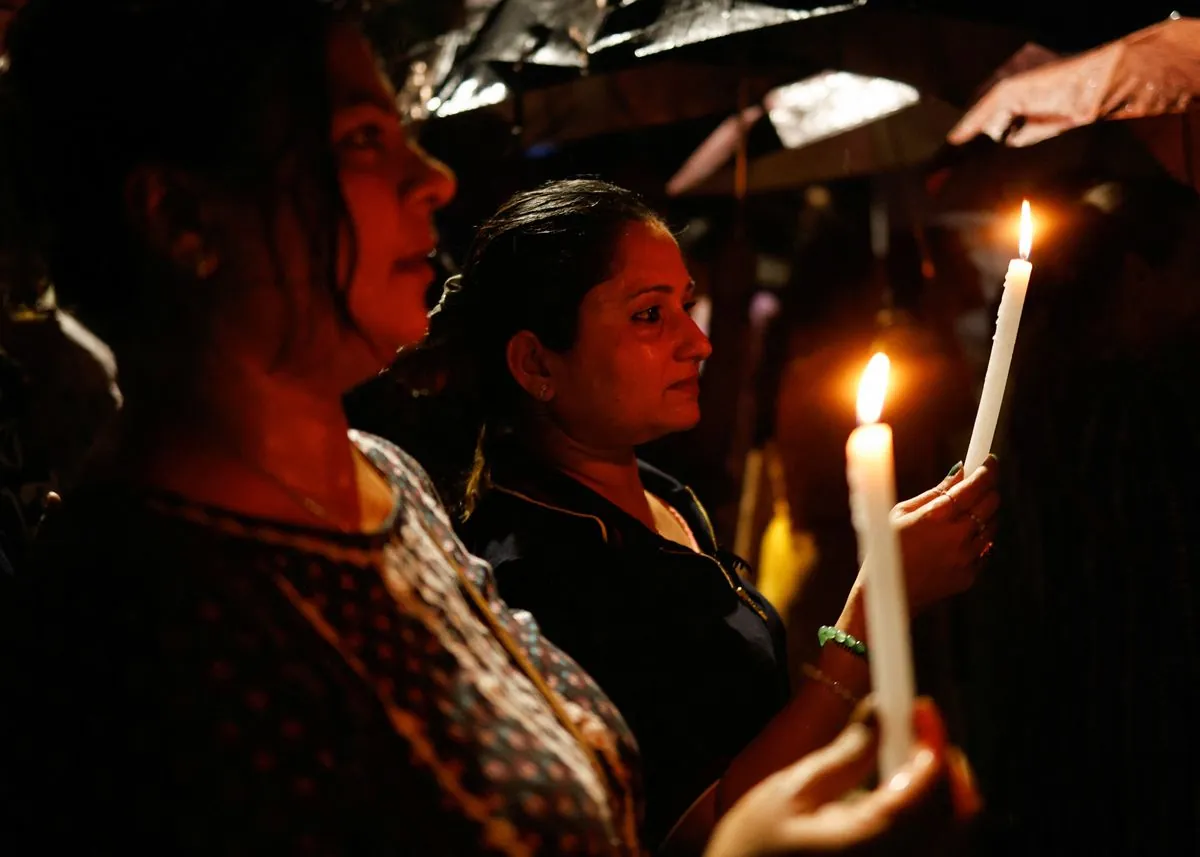Nationwide Outrage Erupts Over Doctor's Rape and Murder in Kolkata
A trainee doctor's rape and murder in Kolkata sparks nationwide protests. Medical community plans 24-hour shutdown, while political parties organize demonstrations, echoing concerns raised by the 2012 Delhi gang-rape case.

The recent rape and murder of a 31-year-old trainee doctor in Kolkata has ignited widespread anger across India, prompting nationwide protests and calls for enhanced safety measures. The incident, which occurred approximately one year ago in a medical college, has drawn parallels to the infamous 2012 Delhi gang-rape case, reigniting discussions about women's safety in the country.
In response to this tragic event, the Indian Medical Association (IMA), the largest association of doctors in India established in 1928, has announced an unprecedented 24-hour nationwide shutdown of most hospital departments, excluding essential services. This action, scheduled to begin on August 17, 2023, marks the largest such strike in at least a decade.
"Doctors, especially women are vulnerable to violence because of the nature of the profession. It is for the authorities to provide for the safety of doctors inside hospitals and campuses."
The IMA's decision underscores the growing concern over the safety of medical professionals, particularly women, in their workplaces. This incident has brought to light the challenges faced by India's healthcare system, which already struggles with a doctor-patient ratio of 1:1456.
Political parties, including the opposition Bharatiya Janata Party (BJP) in West Bengal, have organized protests in Kolkata, the state capital with a population exceeding 91 million. The case has also garnered attention from celebrities and politicians, who have expressed shock and called for stricter punishments for crimes against women.

Law enforcement has arrested a police volunteer who worked at the hospital and charged them with the crime. This development raises questions about the effectiveness of existing security measures in medical institutions and the need for more comprehensive protection for healthcare workers.
The incident has reignited discussions about women's safety in India, a persistent issue despite legal reforms following the 2012 Delhi gang-rape case. Those reforms led to the creation of the Nirbhaya Fund for women's safety initiatives and the introduction of stricter rape laws in 2013, including the death penalty for repeat offenders.
However, the continued occurrence of such crimes highlights the gap between legislation and implementation. According to the National Crime Records Bureau, India reported 31,677 rape cases in 2021, a stark reminder of the ongoing challenges in ensuring women's safety.
The case also brings attention to broader issues of gender inequality in India. The country ranks 135th out of 146 countries in the Global Gender Gap Index 2022, despite constitutional guarantees of equality and laws such as the Protection of Women from Domestic Violence Act (2005) and the Sexual Harassment of Women at Workplace Act (2013).
As the nation grapples with this tragedy, the incident serves as a somber reminder of the urgent need for comprehensive reforms to protect women and medical professionals alike. The coming days will likely see continued protests and discussions, as India seeks to address these deep-rooted issues and work towards a safer society for all its citizens.


































